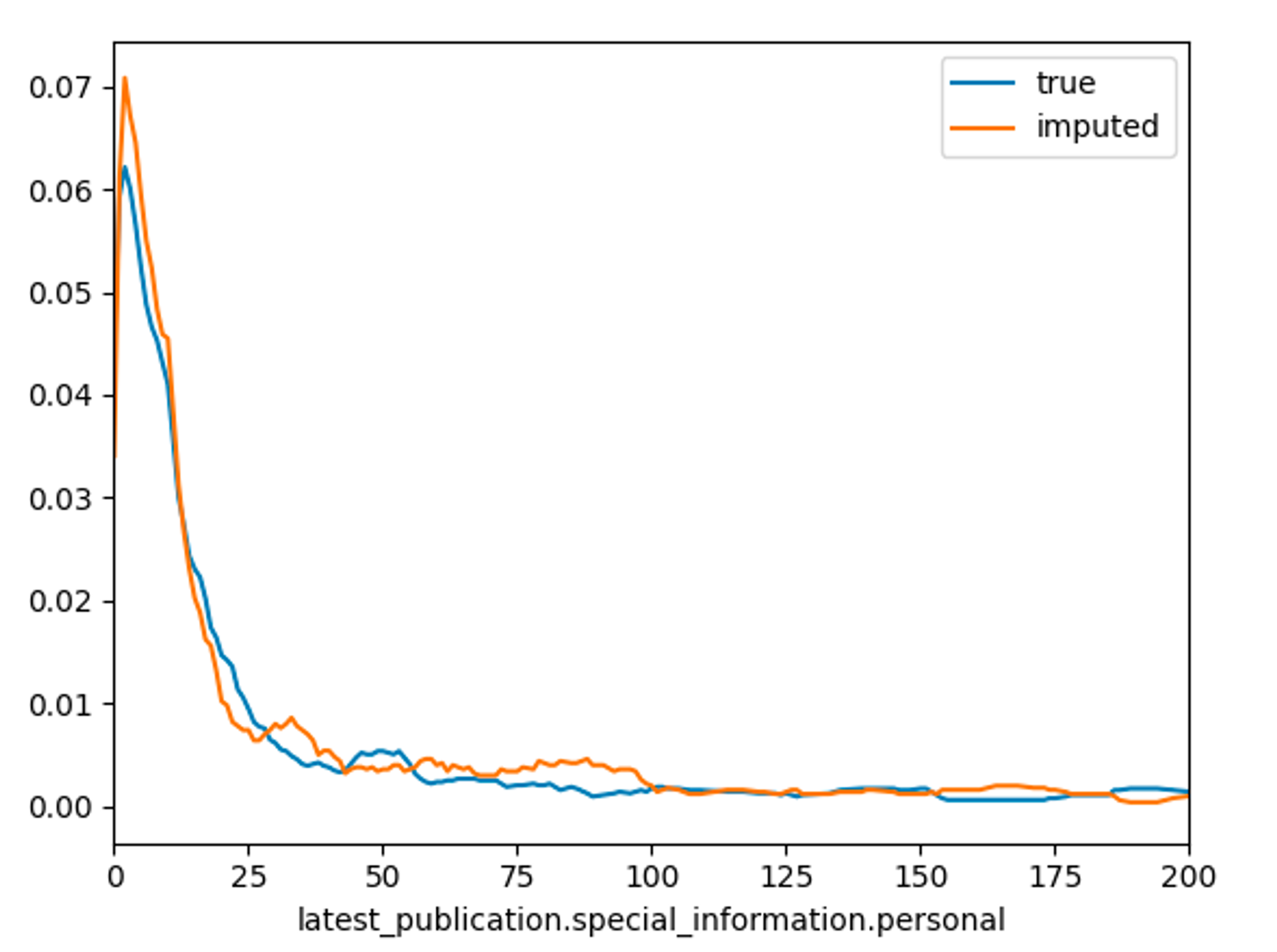How to Accurately Predict Company Sizes for SMBs
We discuss the use of imputation techniques to accurately estimate company sizes using unconventional data.

In the realm of B2B sales and marketing, the ability to accurately target small and medium-sized enterprises (SMEs) is paramount. Particularly in Germany, where SMEs not only form the backbone of the economy but also contribute nearly 30% of all revenues, pinpointing the right companies for outreach can be a game-changer.
However, the challenge has always been the lack of precise data, especially when it concerns the size of these firms—a critical factor in determining their structure and needs.
#The Challenge with SME Data
Traditionally, data platforms have gravitated towards serving the needs of larger corporations, leaving a significant gap in the market for SME-focused insights. This gap not only undermines the potential of SMEs as lucrative targets but also complicates the task of identifying companies that fit a specific Ideal Customer Profile (ICP).
A recent collaboration with a consulting firm specializing in leadership training for SMEs brought this challenge to the forefront. Tasked with compiling a list of potential clients, we encountered a common hurdle: The absence of reliable headcount data due to German accounting laws, which exempt smaller companies from disclosing such information and many of them being off business networks like LinkedIn, hence largely untracked by incumbent B2B lead databases.
#Innovative Solutions through Imputation and Boosted Trees
Our journey to overcome this obstacle led us to explore imputation techniques, a concept familiar to data science aficionados. Imputation involves estimating missing data points with a high degree of accuracy, without resorting to complex machine learning models. After some experimentation, we found boosted trees to work best as the “thinking unit”.
Faced with the shortage of accurate training data for estimating company size, we developed a novel method that leverages both balance sheet and income statement data, along with company descriptions in natural language, to predict employee headcount more accurately than any other data platform currently available.
To cut a long story short, the results we achieved are looking extremely promising:

#Engineering Hours Well Spent: The Impact of Precise Company Data
The implications of this development are far-reaching. While seemingly a small feature, knowing the approximate headcount of a company is the difference between having and not having them as a customer.
This challenge underscores the broader issue we tackle daily: the inadequate mapping of the German SME market by existing data platforms. But rather than viewing this as a shortcoming, we embrace the invitation to bridge this critical information gap.
By equipping sales teams and marketers with accurate company data, we enable them to refine their outreach strategies more effectively, connecting with firms that align perfectly with their ICP. This is particularly vital in a landscape where comprehensive, published data remains scarce.
This capability extends beyond just headcount to encompass other fundamental details critical for a deep understanding of a company's core structure and operations. Thus, our solution doesn't merely address a data void; it transforms how businesses engage with the SME market by unlocking crucial insights.
#Conclusion: A Game-Changer for B2B Engagement
Our commitment to refining SME targeting via data imputation is more than just a technical endeavor; it's a reflection of our overarching mission to empower businesses with the necessary information to take the right decisions in navigating complex marketplaces.
As we continue to hone our methods and broaden our technological offerings, our focus remains steadfast on providing unmatched accuracy and insights: We want to offer a new pathway for those on the frontlines of B2B sales and marketing to connect with the often untapped SME sector through informed, strategic engagement.
Join the Narratic AI Insider Circle
Get early access to insights, product updates, and discussions on the future of AI for revenue teams